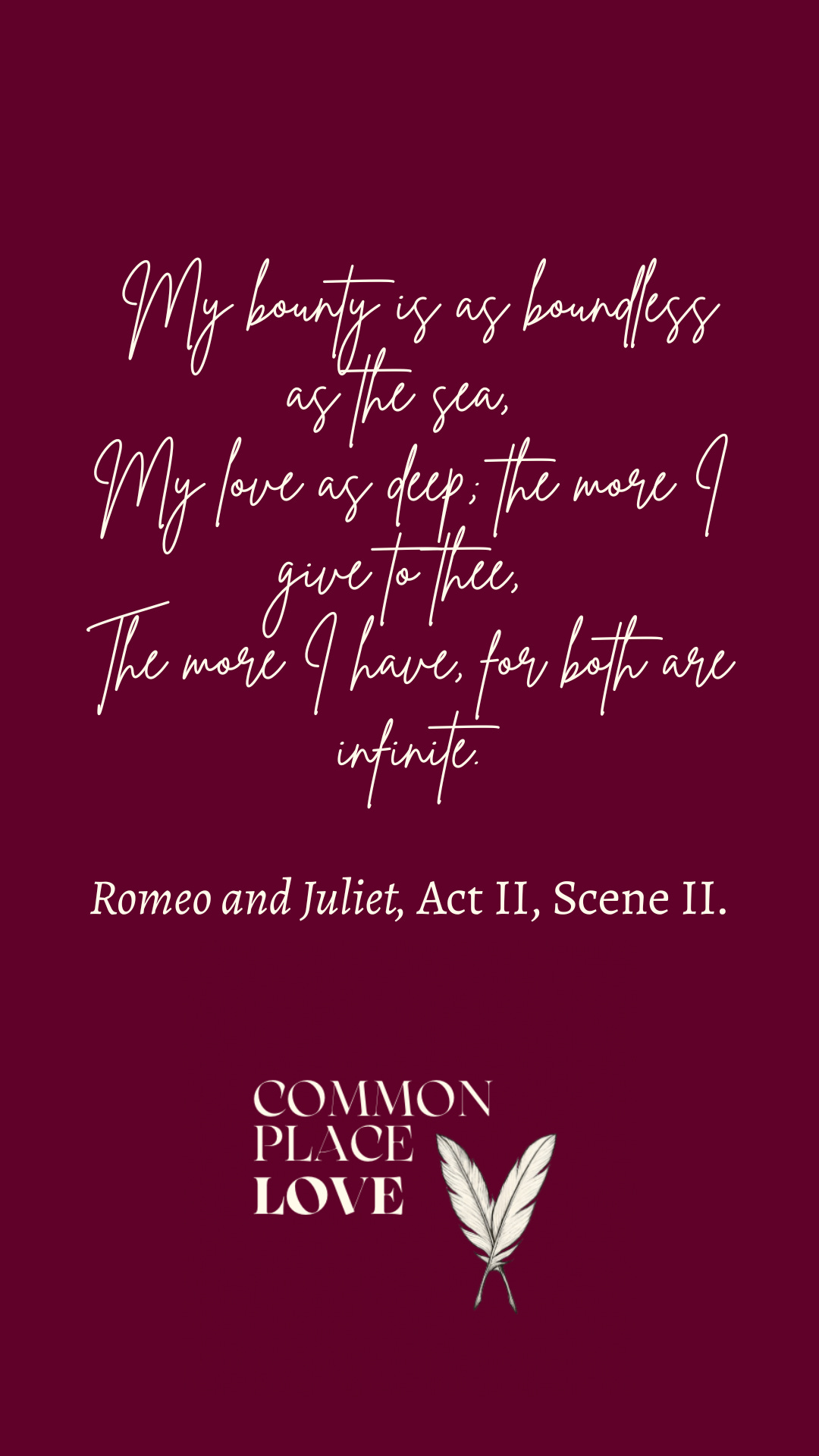Romeo and Juliet - a love as boundless as the sea
An epic, iconic love story - the perfect place to start.
Welcome to Commonplace Love, a brand new project - a commonplace book about love, collated right here on Substack.
You may already know that I write a newsletter called Five Books For, where I share five themed book recommendations each month, and a column called Great Adaptations over at Global Comment, where I explore a book and its media adaptation (on the same theme as FBF) each month.
In April, the theme was books inspired by Shakespeare. While I had some great titles to recommend, the one that has lingered in my mind the most is Shakespeare’s own Romeo and Juliet, which I wrote about for Great Adaptations. And so I thought, what better way to start a commonplace book about love than with a line from this most iconic of love stories?
These lines are from the balcony scene, perhaps the most famous moment in all of Shakespeare. Spoken by Juliet after Romeo has climbed into the orchard outside her room and they’ve declared their love, we see them move from shyness to abandon, innocence to intensity as the scene progresses.
I love the simple truth these lines express: the more love you give, the more you find you have to give. Isn’t that magical?
❧ Go deeper ❧
Juliet compares her love to the sea - something deep, vast, impossible to measure, continuing a long tradition of using water to describe emotion, especially love. We talk about diving in at the deep end, falling hard, being swept away - these are all ways of expressing both intensity and potential danger.
When Juliet speaks these words, it makes me think of the uncharted nature of the oceans when Shakespeare was writing, and maps with pictures of sea monsters on them: here there be dragons. And she’s right: love, like the sea, is powerful, mysterious, and full of wonder - but also danger. Ultimately, for Romeo and Juliet, love is bountiful and boundless, but it proves tragically dangerous too.
❧ Water and emotion ❧
Water and emotion aren’t only metaphorically linked - they can be almost viscerally connected. The body responds to feelings with tears and sweat, feelings sweep across us like waves: swelling, rushing, cresting. We reach instinctively for watery language when we feel deeply: waves of grief, floods of joy, drowning in sorrow, welling up with feeling.
Juliet’s use of the word bounty is particularly striking: her love is a gift, both to Romeo and to herself. It’s generous, abundant, endlessly multiplying - there’s a kind of emotional alchemy, where affection defies scarcity. I love the idea of love as an infinite, self-renewing force.
And while Juliet is speaking of romantic love, I think many people of faith would describe divine love in much the same way - an infinite, boundless love deeper than any ocean and immeasurable beyond words.
❧ See you next week ❧
I’ll be back next week with more thoughts, fragments, and traces of love.
Until then,
Kate
P.S. What’s a line about love that’s stayed with you? I’d love to know.






